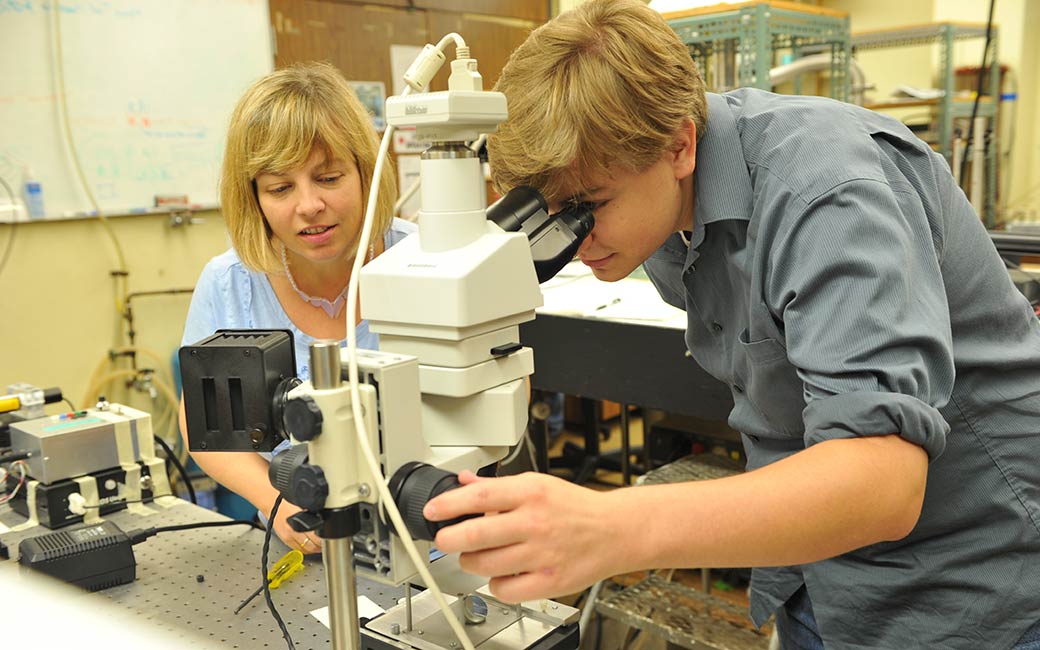Physics
Physics is fundamental to understanding the workings of the universe. Studying physics challenges the imagination and yields big discoveries that shape our comprehension of the world around and beyond us.

Why Study Physics?
The physics program at Towson University prepares you for a wide range of career options because you’ll develop big-picture quantitative reasoning and analytical skills that are highly desirable to employers.
Classes emphasize physics fundamentals and their applications through quality teaching and direct research experiences.
Graduates go on to technical and professional careers as researchers, teachers, analysts, engineers, technicians and programmers in industry, government and education. Studying physics is also excellent preparation for graduate and professional schools.
Learn more about careers in physics at the Career Center.
Design Your Degree
Physics majors select a concentration in general physics, applied physics, computational physics, or astrophysics. These are designed to give you flexibility in preparation for graduate study in physics, astrophysics, medicine, engineering or other allied fields; and for professional practice as a physicist in industrial, government or institutional laboratories.
If you plan to teach, the secondary education concentration in physics (part of Towson UTeach) will prepare you to apply for certification upon graduation.
Graduates can pursue a master’s in applied physics or a second bachelor’s degree in physics.
Towson University also offers a dual-degree engineering program.
WHY TOWSON?
Academic Advantages
- big-school resources with small-school attention
- world-class facilities and equipment, including a state-of-the-art nanotechnology lab
- small classes taught by faculty who are dedicated teachers and accomplished in both experimental and theoretical research
- independent study, research and internship opportunities